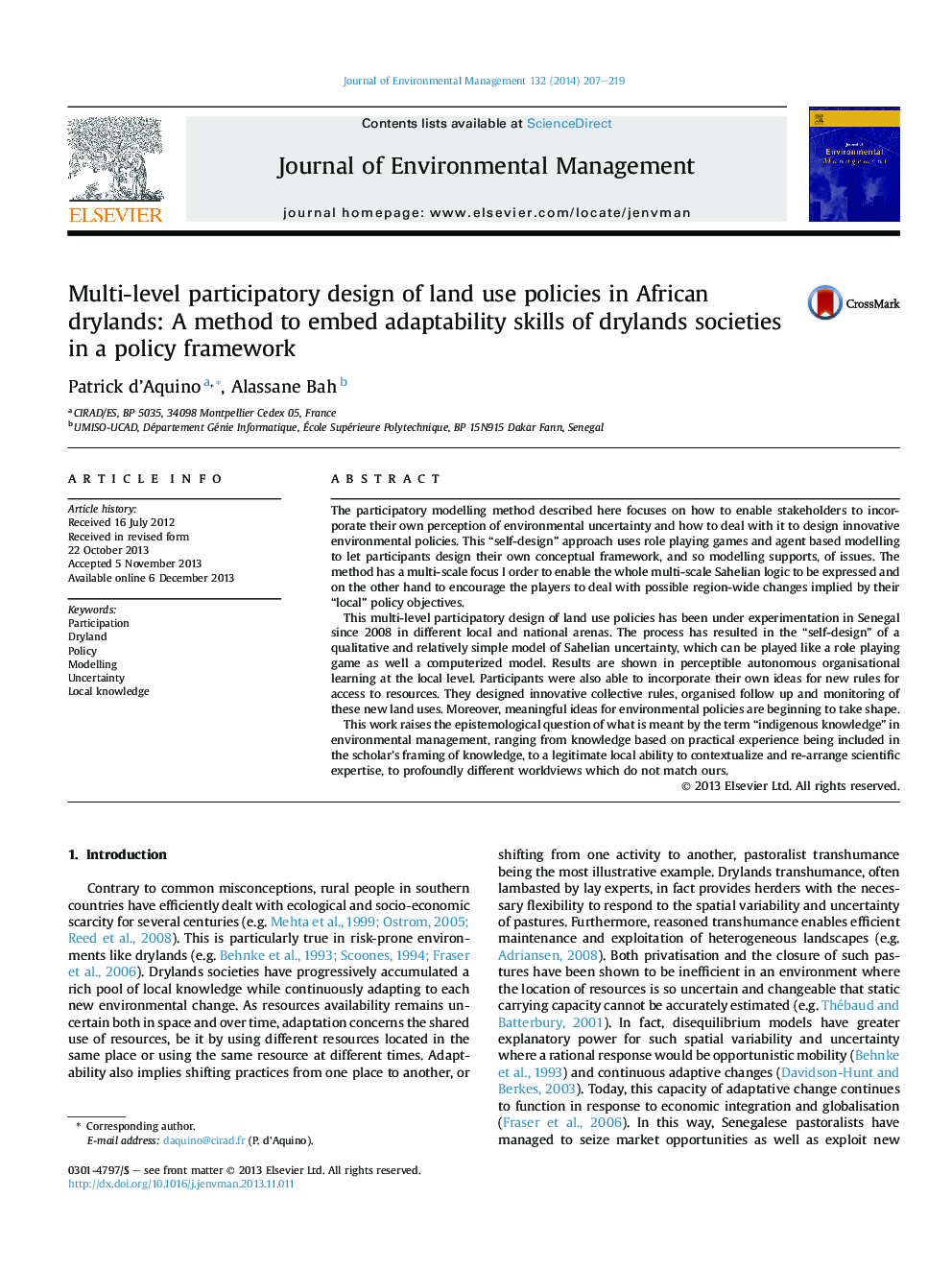| Article ID | Journal | Published Year | Pages | File Type |
|---|---|---|---|---|
| 1055797 | Journal of Environmental Management | 2014 | 13 Pages |
•A participatory modelling lets people design their own model using their own knowledge.•An inclusionary method involves and interlinks stakeholders at local to national levels.•Participants create a qualitative model that nevertheless reflects the complexity of drylands environmental uncertainty.•Participants use the model to shape unusual uncertainty management principles for policy design.
The participatory modelling method described here focuses on how to enable stakeholders to incorporate their own perception of environmental uncertainty and how to deal with it to design innovative environmental policies. This “self-design” approach uses role playing games and agent based modelling to let participants design their own conceptual framework, and so modelling supports, of issues. The method has a multi-scale focus I order to enable the whole multi-scale Sahelian logic to be expressed and on the other hand to encourage the players to deal with possible region-wide changes implied by their “local” policy objectives.This multi-level participatory design of land use policies has been under experimentation in Senegal since 2008 in different local and national arenas. The process has resulted in the “self-design” of a qualitative and relatively simple model of Sahelian uncertainty, which can be played like a role playing game as well a computerized model. Results are shown in perceptible autonomous organisational learning at the local level. Participants were also able to incorporate their own ideas for new rules for access to resources. They designed innovative collective rules, organised follow up and monitoring of these new land uses. Moreover, meaningful ideas for environmental policies are beginning to take shape.This work raises the epistemological question of what is meant by the term “indigenous knowledge” in environmental management, ranging from knowledge based on practical experience being included in the scholar's framing of knowledge, to a legitimate local ability to contextualize and re-arrange scientific expertise, to profoundly different worldviews which do not match ours.
